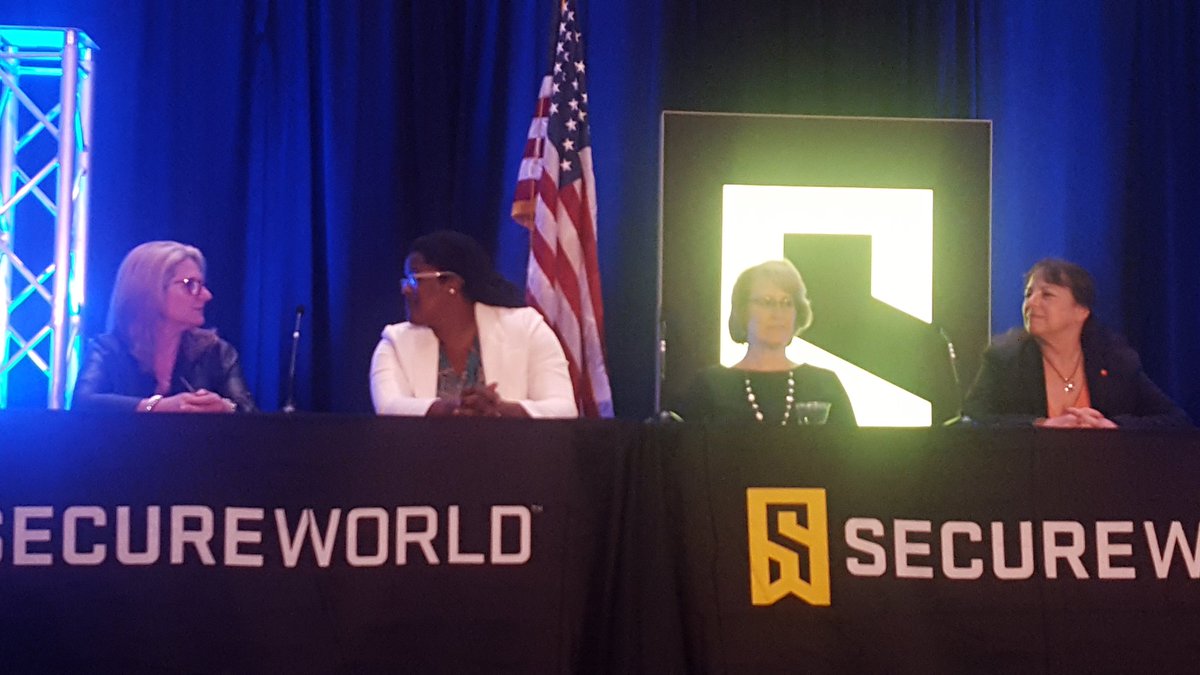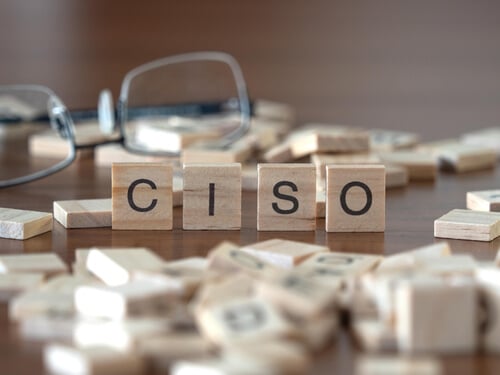We’re still trying to process all the wisdom that came from a powerful panel of cybersecurity leaders at SecureWorld Atlanta last week.
Here’s the lineup, from left to right in the picture below:
Ann Marie Isleib, VP, Enterprise Sales, at Okta; Sherron Burgess, SVP & CISO, BCD Travel; Deborah Wheeler, CISO, Delta Air Lines; and Phyllis Woodruff, VP, Enterprise Cybersecurity Programs, Fiserv.

Ed Pascua, who is SVP at Simeio Solutions and Director of ISSA Metro Atlanta, moderated the panel.
Pascua started off by asking a really important question we often hear discussed at SecureWorld cybersecurity conferences: What was your path into cybersecurity, and what decisions have you made since then that accelerated your career?
Here are the answers, edited for brevity, from this panel of cybersecurity leaders.
Phyllis Woodruff, VP, Enterprise Cybersecurity Programs, Fiserv
"One of the bosses I’m most fond of was the woman who helped me transition from general technology into security. She tapped me on the shoulder one day and said, 'I need a PCI program manager.' This was 10 or so years ago, and I was just starting out on the PCI journey, and I, frankly, didn’t know how to spell PCI.
But she took me under her wing, and we went from one compliance business unit to, we now have 43 level one service provider units across greater Fiserv manned by 24,000 individuals.
So, it has been an amazing journey, and I credit that leader with recognizing that I am tenacious, that I do care a great deal. And she gave me that opportunity. And I asked her why once, and she said, 'I sometimes ask you to do things that I know you think are really stupid. And you always do them really, really well.'"
Deborah Wheeler, CISO, Delta Air Lines
"I was early in my career, and I’m not going to say how many years ago, but I was working in the security field, and I had the opportunity to take a promotion.
But the promotion involved moving outside of security, and into business concentrated management. And it would have meant that I would have become a peer to my boss at the time. And I also happened to have been pregnant with my third child, and was debating whether or not I wanted to take on learning a brand new space just to get this promotion, or, you know, be focused on this new child and continuing on in my security journey.
And he pulled me aside, and he said, 'You need to stop thinking about everything as trying to achieve the next rung on the ladder or looking solely at things from a promotion perspective. And you need to start looking at what is the right fit for your life. Where are you at right now in your life, and what are the things that are important to you? And start making decisions based on life-fit.'
And I thought about that for maybe a day, two days, and it’s the one piece of advice that has stuck with me my entire life. And it’s the piece of advice I give to people, young people, who get frustrated because they don’t feel their careers progressing as fast as they would like. You need to think about where you’re at in your life and what you want to accomplish, and what fits well with that.
I made the decision, obviously, to stay in the security space. I bypassed the promotion, and within a year, I wound up being promoted into my boss’s role as he took a different role. So the patience paid off, but more importantly, I could have gone in a completely different direction. Instead, I wound up in security."
Sherron Burgess, SVP & CISO, BCD Travel
"Kind of early in my own career, I started off doing compliance. So I’d been hired to do compliance and do some auditing. I had a lot of customer inquiries and no one really knew what to do with them or what the environment looked like.
And it was a person who I still consider my mentor today who said, 'Hey you, you should do it.' I said, 'Well, I don’t know, I don’t know if I know all this stuff.' He said in response, 'Just, just do it. Do your best, work everything out, outline what you don’t know, and go from there.' And I did that.
And I think one of the things that I struggled with early in my career was trying to be like I was an IT person. And I wasn’t. And so, in doing that, I was not relying on what my natural gifts and talents were, and I tried to be like others instead of trying to focus on what I did best. And once I kind of realized what that was, things just kind of went well from there.
So now saying, ‘Just put yourself out there, just try it, but use your natural talents,' is something that I’ve always taught to new people that I hire. I’ll say in interviews, 'Hands down with your eyes closed, what are you good at? What is your natural gift?' And if you continue to use that natural gift, well, it was extremely valuable for myself and my career.'"
Ann Marie Isleib, VP, Enterprise Sales, Okta
"15 years ago—I’ve been in the technology industry for 30 years now—my husband and I had our daughter. And I made a decision for life-fit to step out of leadership and become an individual contributor. It was the right decision for me at the time; I’m sure someone gave me the advice as well.
And four years later, when my daughter was turning 4, I was ready to get back into leadership. And what shocked me was how difficult it was to find my place, and to find the sponsorship I needed to come back in, and the kinds of questions people had, and some were even brazen enough to ask about why I made the decision I did, questioning my work ethic, you know, different things that were cast down on me.
And what further exacerbated that was that I was with Oracle at the time, I had moved from Los Angeles where I had been for five years, where I had a reputation, and I moved to D.C. where I didn’t know anyone.
I guess I underestimated the political landscape. And there was a woman, her name is Susan Cook, she is an Executive Vice President over now at MicroStrategy. At the time, she was running our BI practice. And we met, and she advocated like crazy for me. And she got me into leadership.
And what I learned from there was that I was going to advocate for women. Because she understood the journey I was taking and the reasons that I took it. And others chose not to or were not capable of understanding, but she did.
And since then I have worked really hard and diligently to try to seek out women that have talent and to help to advocate for them, and to help to advocate for other underrepresented groups as well, so that they get a fair shot and are able to achieve the things that they are capable of and are able to do their best work. So I have Susan Cook to thank, you have someone else, we all have people to thank in our careers."
Yes indeed, each of us certainly does.
And we have the Atlanta panelists to thank for helping SecureWorld with its mission of connecting, informing, and developing leaders in cybersecurity.
[RESOURCE: Complimentary SecureWorld Web Conferences]
[RESOURCE: 2019 Regional Cybersecurity Conference Calendar]




